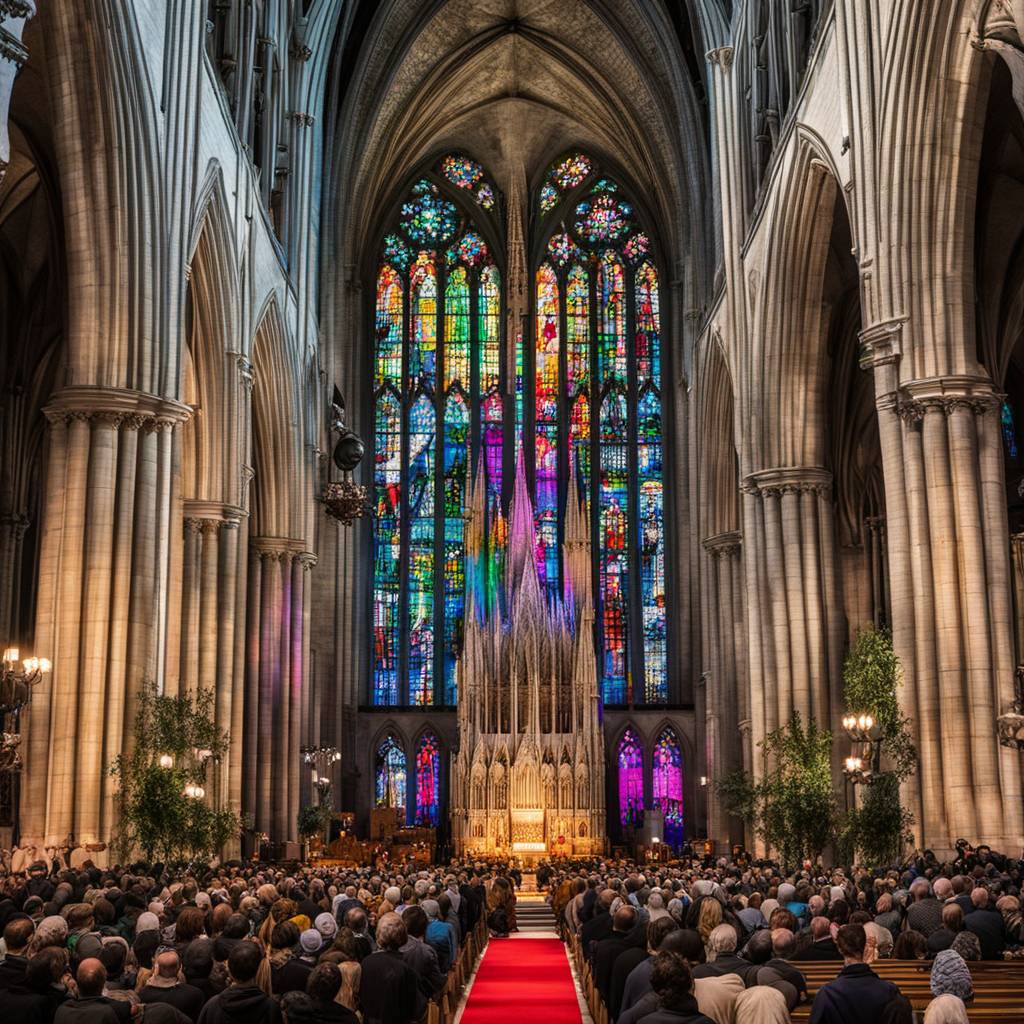Thousands of Pro-Palestinian protesters gathered in Times Square for “Palestinian Land Day” and then disrupted the Easter Vigil service at St. Patrick’s Cathedral in New York City with chants of “Free, free Palestine.” The protesters were quickly removed from the service, led by Cardinal Timothy Dolan, as many attendees did not acknowledge the outburst. The incident occurred amid ongoing protests against the Israel-Hamas war in Gaza, with millions gathering worldwide. The United States Conference of Catholic Bishops called for prayer for peace in the Middle East and an end to the conflict.
The USCCB has consistently issued calls for peace, prayer, fasting, and the release of hostages captured by Hamas since the start of the war in Israel. The conference has also denounced the deaths of civilians and the tremendous suffering experienced by displaced individuals. The bishops emphasized the need for the conflict to end, stating that “thousands of innocent people have died in this conflict” and that it must stop. As Holy Week began, the Church’s focus on Christ’s suffering on the cross and resurrection serves as a source of hope and connection to those affected by the violence in the Middle East.
The disruption of the Easter Vigil service at St. Patrick’s Cathedral highlights the tension surrounding the Israel-Hamas conflict and the passionate responses it has evoked globally. The incident reflects the deep-rooted emotions and political divisions that have intensified as the violence in Gaza continues. As protesters advocate for Palestinian rights and demand an end to the conflict, religious leaders like Cardinal Dolan seek to maintain a sense of peace and unity during religious services. The clash between political activism and religious worship underscores the complex challenges faced by communities amidst global conflicts and social justice movements.
President Trump has demanded an apology from President Biden over the promotion of Trans Visibility Day on Easter Sunday, labeling it as “appalling” and “blasphemous.” The statement adds another layer of political controversy to the already tense atmosphere surrounding the Israel-Hamas conflict and global protests. As world leaders grapple with the ongoing violence in Gaza and its repercussions, the intersection of religious observances and political statements further complicates efforts to address the root causes of the conflict and work towards a resolution. The call for prayer for peace in the Middle East by the USCCB reflects the broader desire for reconciliation and healing in the face of violence and discord.
The disruption of the Easter Vigil service by Pro-Palestinian protesters and the response from religious leaders and attendees underline the challenges of addressing complex political issues within faith communities. The incident serves as a reminder of the interconnectedness of global conflicts, social justice movements, and religious traditions. As the Israel-Hamas war continues to escalate, the need for dialogue, understanding, and peaceful resolution becomes ever more urgent. The calls for prayer for peace and the denunciation of violence by the USCCB reflect a broader commitment to reconciliation and justice in the midst of turmoil and suffering. The clash between political activism and religious observance sheds light on the complex dynamics at play in contemporary society and the range of perspectives and emotions that shape responses to conflicts and injustices.


